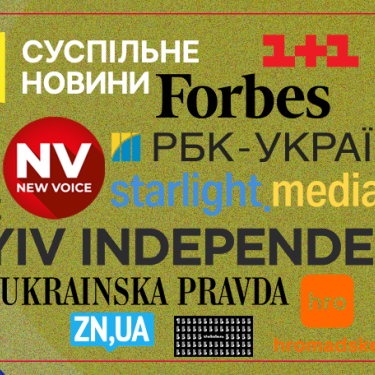Prioritise inclusion of media in reconstruction programmes in Ukraine, says RSF

After more than two years in which Ukraine’s media have been hit hard by the economic consequences of the large-scale invasion that Russia launched in February 2022, Reporters Without Borders (RSF) urges participants in the third Ukraine Recovery Conference to include the media in reconstruction programmes in order to ensure Ukrainian journalism’s long-term survival.
Government leaders and representatives of international organisations and financial institutions attending the international conference on Ukraine’s reconstruction in Berlin on 11 and 12 June must ensure that the sustainability of Ukraine’s media figures prominently in the reconstruction talks, RSF says.
RSF was one of the signatories of an op-ed endorsed by more than 120 local and international organisations and media representatives calling for Ukraine’s media to be included in the reconstruction plans.
"The professional media can effectively communicate to the public the developments in reconstruction, the allocation of funding from international partners, the implementation of aid programmes, and the provision of public oversight on expenditures,” the op-ed points out.
As part of the assistance efforts, RSF is currently studying the possibility of an international fund – one independent of all governmental institutions – that would channel direct financial assistance to Ukrainian media outlets.
“The Ukrainian media’s survival is vital for democracy’s survival and is an essential condition for any reconstruction policy. Competing with Kremlin propaganda and targeted by Russian forces, the media need financial support in order to ensure their sustainability and preserve the right to information in Ukraine. There cannot be large-scale investment by banks and development agencies without quality journalism capable of investigating corruption and monitoring the actions of public decision-makers. A commitment to journalism must be one of the Ukraine Recovery Conference’s priorities.
Financial needs at the regional level
A sudden, 63% fall in revenue from Ukrainian advertising in 2022, as well as the bombing of infrastructure and the departure of journalists are among the economic consequences suffered by Ukraine’s media since Russia launched its large-scale invasion in February 2022. At least 234 media outlets have had to close since the start of the invasion, according to the Institute of Mass Information (IMI), RSF's partner in Ukraine.
Some media have benefited from a gradual recovery in the advertising market in 2023, by diversifying their income via the online distribution channel YouTube and by organising private events, as an investigative report by the Ukrainian media outlet Forbes.ua recounted in March 2024. But almost a third of the country’s media companies identify a lack of funding as a major challenge affecting their work, according to a study published in early May by the Media Development Foundation, a local NGO.
By destroying media premises and sabotaging local advertising revenue, the Russian invasion exacerbated the shortage of independent media in several regions. Some districts in the Poltava, Dnipro and Odessa regions in the east and south of the country have become “information deserts,” the Media Development Foundation study says. In these deserts, news is mainly disseminated on social media such as Telegram, Facebook and Instagram. Parts of the Donetsk and Luhansk regions, which have been occupied for more than a decade, have also become “information deserts” where all local media have been replaced by Kremlin propaganda outlets.
Since the start of the large-scale war more than two years ago, RSF has provided emergency funding to 35 Ukrainian media outlets, nearly half of them in cities near the front that are particularly exposed to Russian bombardment.
